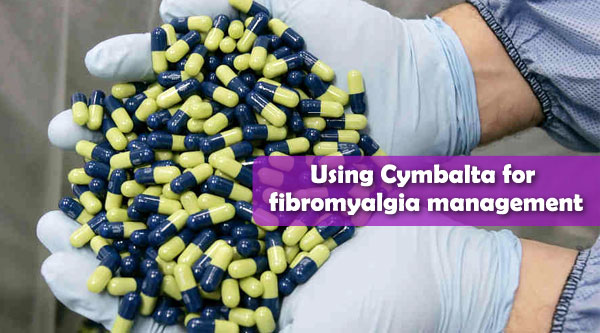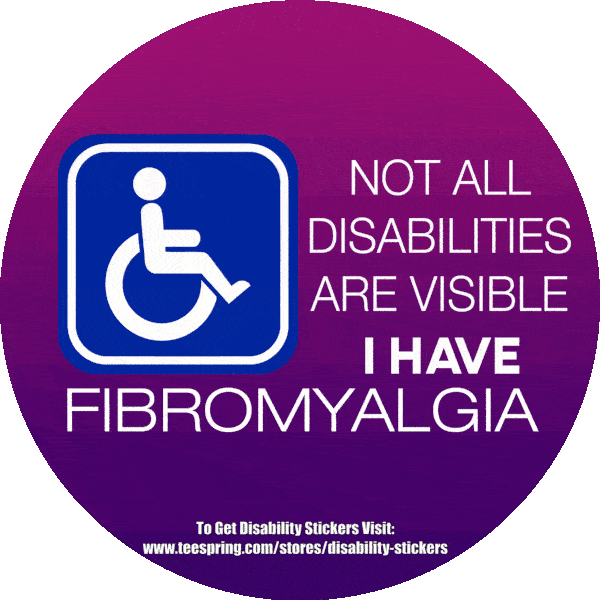Cymbalta (duloxetine) is a selective serotonin and norepinephrine reuptake inhibitor antidepressant (SSNRI) Duloxetine affects chemicals in the brain that may be unbalanced in people with depression. Cymbalta is used to treat major depressive disorder in adults. It is also used to treat general anxiety disorder in adults and children who are at least 7 years old. Cymbalta is also used in adults to treat fibromyalgia (a chronic pain disorder), or chronic muscle or joint pain (such as low back pain and osteoarthritis pain). Cymbalta is also used to treat pain caused by nerve damage in adults with diabetes (diabetic neuropathy).
Fibromyalgia is a perplexing and often disabling disorder that affects millions of Americans. However, new treatments are offering hope to those living with the pain of fibromyalgia. Cymbalta is a medication approved to manage the unique symptoms of fibromyalgia.
According to the National Fibromyalgia Association, patients often experience a deep muscular aching, throbbing, twitching, stabbing and shooting pain that “knows no boundaries, migrating to all parts of the body and varying in intensity.” Neurological complaints, such as numbness, tingling and burning, are often present and add to the discomfort of the patient.
Mechanism of action of Cymbalta
SNRIs such as Cymbalta for fibromyalgia act upon chemicals produced by the body called neurotransmitters. These chemicals normally carry out vital functions within the brain. In this case, it’s a bit easier to understand their importance by looking at the side effects from when neurotransmitters don’t work properly: cognitive impairment, memory loss, anxiety, depression, health problems such as fibromyalgia and neuropathic pain, and many others are the common results. That gives you a little insight into the critical role that neurotransmitters play in your health and overall well-being.
NRIs aid the brain in the proper processing of neurotransmitters within the brain. Although researchers are not completely certain how it works. Normally, the brain will do this automatically. For people with depression, anxiety, and fibromyalgia however, this is not the case. Instead of neurotransmitters carrying out their proper function within the brain, they get broken down and reabsorbed (hence the “reuptake”) into their constituent parts.
SNRIs bond to neurotransmitters and force them to remain in the brain until they are properly absorbed. Once absorbed, the brain uses them correctly, and the expected benefits they provide are usually experienced. SNRIs have helped many people with major depressive disorder and anxiety, as well as people diagnosed with fibromyalgia.
Role of Cymbalta in Treating fibromyalgia
Cymbalta, a balanced and potent serotonin and norepinephrine reuptake inhibitor, is proven to help treat the emotional and painful physical symptoms of depression. Living with fibromyalgia is like living a nightmare. And since no one is sure what causes it, treating fibro has been very difficult. One of the features that make it so hard to understand is due to how varied the symptoms are.
To add to the confusion, no two fibro patients have the same experience. Sure, there are generic symptoms that most of us deal with, but the severity, combinations, and triggers are across the board. The key symptoms we are most familiar with are chronic pain, chronic fatigue, sleep problems, memory issues, mood disorders like anxiety and depression, and so on.
Thus, treating fibromyalgia can be downright baffling at times. There are certain options, however, that allow you to treat more than one of your symptoms at a time. A commonly prescribed form of medication for treating fibromyalgia symptoms is from a family of drugs commonly known as antidepressants. In fact, they are often prescribed for fibro patients even if depression is not a debilitating symptom.
These come specifically from a highly effective branch of drugs known as SSNRIs or SNRIs. Just like any other medication, however, it is important to understand that everyone is different. No two bodies are identical, and so no two people will experience exactly the same results, whether they are positive or negative.
Make sure you report any other medications you are taking before your doctor prescribes Cymbalta for fibromyalgia. That includes medications as well as any herbal or health supplements. Sometimes even naturopathic herbs for treating various fibromyalgia symptoms can interact dangerously with prescription medications. Cymbalta, like other SNRIs, has proven very effective for many fibromyalgia patients.
Fibromyalgia Disability Car bumper sticker: Lets put this sticker on your car and spread the fibromyalgia awareness. As many people out there don’t consider our illness as being disable, because they don’t know it.
– Click Here to get Yours Fibromyalgia Disability Sticker for you Car
And yet, others can’t take it because it actually does make some symptoms worse. You’ll simply have to do your own research, talk to your doctor, and possibly do a trial run of Cymbalta. Only you can determine what is best for you and your experience with fibromyalgia.
Side effects of Cymbalta
All of the selective serotonin reuptake inhibitors (SSRIs), including Cymbalta, have the potential to negatively affect sexual function. Some people have reduced libido and others cannot reach orgasm.
In the fibromyalgia study of Cymbalta, the most common side effects were:
- nausea,
- dry mouth,
- constipation,
- decreased appetite and
- anorexia.
In clinical studies of Cymbalta for depression, the most common side effects were nausea, dry mouth, constipation, decreased appetite, fatigue, sleepiness, and increased sweating.
Safety measures before taking Cymbalta
People who are allergic to duloxetine hydrochloride or the other ingredients in Cymbalta should not take it. If you have recently taken a type of antidepressant called a monoamine oxidase inhibitor (MAOI), are taking thioridazine or have uncontrolled narrow-angle glaucoma, you should not take Cymbalta.
Talk with your doctor before taking Cymbalta if you have serious liver or kidney problems, glaucoma or consume large quantities of alcohol. Women who are pregnant should talk with their doctor before taking Cymbalta. Nursing while taking Cymbalta is not recommended
How to take Cymbalta
Cymbalta is a capsule that you take by mouth once a day. The recommended dose is 60 milligrams a day. However, your doctor will likely tell you to take 30 milligrams a day for the first week, before increasing you to the full dose. It is important to keep in mind that there is no evidence to suggest that taking more than 60 milligrams a day will further reduce your pain. In fact, doing so increases your chances of side effects.
Related Article:
Neurontin and lyrica are a death sentence for a new brain synapses
Doctors warns patients by Prescription Tramadol painkiller “claiming more lives than any other drug”
References:
- How long were you on Cymbalta? via Spine Health
- Cymbalta for Fibromyalgia via WebMd
- Cymbalta Provided Sustained Pain Relief for Women with Fibromyalgia via MNT
- Featured Image courtsey : Fibromyalgia Treating
For support and Discussion join the group “Living with Fibromyalgia and Chronic Illness”
Subscribe to our website for Email notification of our new Posts. Like and Follow us on Facebook. Swipe Left to Read more on Fibromyalgia or Click Here …



One thought on “Cymbalta for Fibromyalgia Treatment”